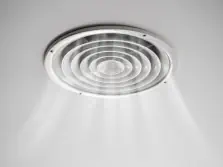Understanding Ducted Heating: Pros & Cons
Ducted heating systems have become increasingly popular choices for homeowners looking to efficiently warm their homes. This article delves into the concept of ducted heating, highlighting its advantages and disadvantages, and provides essential considerations for installing such a system in your home.
What is Ducted Heating?
Ducted heating, also known as central heating, involves a centralized heating unit that distributes warm air throughout a home via a network of ducts and vents. The heating unit, typically located in a designated area such as the attic or basement, heats air and then pushes it through the ductwork to various rooms in the house. This method ensures consistent heating throughout the entire living space.
Advantages of Ducted Heating
Even Heating
Some of the primary advantages of ducted heating is its ability to provide even warmth throughout the entire home, with a relatively low installation cost. Unlike standalone heaters or fireplaces, which may only heat specific areas, ducted heating ensures that every room receives the same level of comfort.
Energy Efficiency
Ducted heating systems can be highly energy-efficient, particularly when paired with modern thermostats and zoning capabilities. By controlling the temperature in different zones of the house, homeowners can avoid wasting energy by heating unoccupied rooms.
Convenience
Once installed, ducted heating systems require minimal maintenance and offer convenient control options. Many modern systems can be programmed to operate on a schedule, allowing homeowners to automate their heating preferences and save both time and energy.
Aesthetic Appeal
Unlike bulky space heaters or traditional radiators, ducted heating systems are largely hidden from view. The vents can be discreetly placed in walls, floors, or ceilings, preserving the aesthetic appeal of the home while providing effective heating.
Disadvantages of Ducted Heating
Installation Costs
For single level homes, gas ducted heating is relatively inexpensive. Retro fitting double storey ducted heating system can be relatively high compared to other heating options. This is especially true for homes that do not already have ductwork in place, as the installation process may involve significant modifications to the existing structure.
Complex Installation
Installing ducted heating requires careful planning and professional expertise. The layout of the ductwork must be meticulously designed to ensure optimal airflow and heating efficiency. Improper installation can lead to uneven heating or increased energy consumption.
Limited Zoning
While zoning capabilities offer energy-saving benefits, some ducted heating systems may have limitations in terms of the number of zones or the precision of temperature control. Homeowners with specific preferences for room-by-room heating may find these limitations restrictive.
Maintenance Requirements
While ducted heating systems generally require less maintenance than other heating options, regular upkeep is still necessary to ensure optimal performance. Filters must be cleaned or replaced regularly to maintain indoor air quality, and ducts may need periodic inspection for leaks or blockages.
Essential Considerations for Installation
Size of the Home
The size and layout of your home will influence the type and capacity of ducted heating system required. A professional HVAC technician can assess your home's heating needs and recommend the most suitable system for optimal comfort and efficiency.
Insulation and Air Sealing
Proper insulation and air sealing are essential for maximizing the efficiency of a ducted heating system. Insufficient insulation or air leaks can result in heat loss, reducing the system's effectiveness and increasing energy costs.
Energy Efficiency Ratings
When choosing a ducted heating system, look for models with high energy efficiency ratings. Energy Star certified systems are designed to meet stringent efficiency standards, helping homeowners save on utility bills while reducing their environmental impact.
Professional Installation
To ensure proper functionality and longevity, always hire a licensed HVAC contractor for the installation of your ducted heating system. Professional installation not only ensures safety and compliance with building codes but also minimizes the risk of performance issues down the line.
In conclusion, gas ducted heating offers numerous benefits in terms of comfort, energy efficiency, and low cost convenience. However, it's essential to weigh these advantages against the associated costs and considerations before making a decision. By understanding the pros and cons of ducted heating and carefully planning the installation process, homeowners can enjoy reliable and efficient warmth throughout their homes for years to come.
View Air Conditioning Articles







 Dealer Only Brands: Daikin, Breezair, etc.
Dealer Only Brands: Daikin, Breezair, etc.
